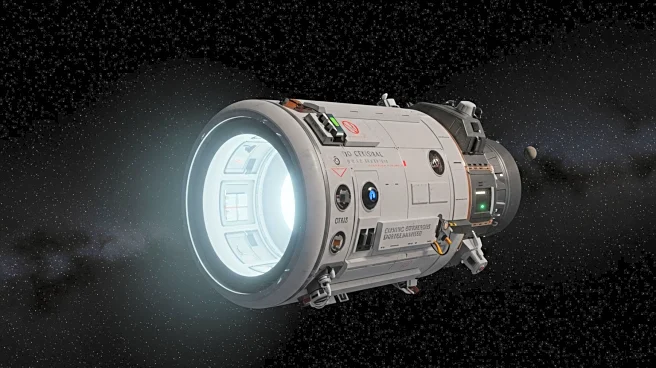What is the story about?
What's Happening?
Russia has launched the Bion-M No. 2 biosatellite from the Baikonur Cosmodrome in Kazakhstan. The mission, which began on August 20, 2025, involves sending 75 mice, 1,000 fruit flies, microbes, cell cultures, and plant seeds into orbit for a month. This initiative aims to study the effects of spaceflight on various organisms, focusing on microgravity and radiation exposure. The Bion-M No. 2 mission is part of Russia's ongoing space-medicine investigations, following the Bion-M No. 1 mission launched in 2013. The satellite will orbit Earth, exposing its payload to cosmic radiation, before returning to Earth for analysis.
Why It's Important?
The Bion-M No. 2 mission is crucial for understanding how space conditions affect living organisms, which is essential for future human space exploration. By studying the effects of microgravity and radiation, researchers can develop strategies to mitigate health risks for astronauts on long-duration missions. This research supports Russia's plans for human exploration of deep-space locations, including the moon. The findings could also contribute to international efforts, such as the China-led International Lunar Research Station, aimed at establishing a crewed moon base in the 2030s.
What's Next?
Upon completion of the mission, the Bion-M No. 2 capsule will return to Earth, where scientists will analyze the biological samples to assess the impact of space conditions. The results will inform future space missions and may lead to advancements in space medicine. Russia's continued focus on space-medicine research indicates potential collaborations with other nations in deep-space exploration projects.
















